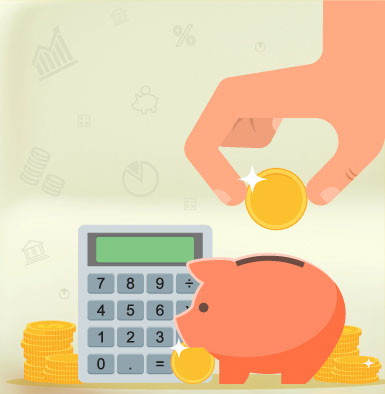Land vs. Houses: Which Is Better Investment in Ghana?
Land vs. Houses: Which Is Better Investment in Ghana?

When you decide to buy land in Accra, your first job should be to research the different lands available and form a plan for what you want to do with them. Perhaps you may be looking to build on the land Deciding which real estate investment in Ghana to invest in is always a tricky decision. While property investment in Ghana is worth putting your money into, you shouldn’t be too quick to dismiss land as a potential revenue generator. However, the question remains: is it better to invest in land or houses in Ghana?
Each of these two investment options comes with its own set of advantages and considerations, making the decision a complex one for young investors. This article provides an understanding of the pros and cons of both options to help you make an informed investment decision.
Investing in Land vs. Houses in Ghana
Whether you invest your money in land or property, with so much at stake, it’s important to do your research - and this article will do just that for you. In this comparison, let’s start first with land.
Investing in Land in Ghana
Land investment to some extent is the most lucrative investment in Ghana. Not only does it have no or low maintenance, but it is generally cheaper to buy, and it may sell for much more than you paid, maximizing your net return. After all, the price of land in Accra has been steadily rising over the years and this shows no signs of stopping anytime soon. But how do land investments in Ghana work, exactly?
How to Invest in Land in Ghana
Step 1: Do your research
yourself, or simply sell it to a developer at a future date.
In Ghana, there are three main land titles- which you can acquire from landowners. These interests in land include the Allodial, Freehold, and Leasehold being the common title you can acquire in the country. There are advantages and disadvantages to each, so it’s important to have a plan for what you want to do with your land ahead of your investment in Ghana.
Step 2: Verify and register land
Most land sold in Ghana does not have planning permission in place, depending on whom you buy the land from you may be required to undergo a land registration from the Lands Commission. However, this is usually limited to lands acquired from traditional owners, which means full ownership is still needed and will have to be applied for within three years of this being granted.
Tip 3: Think long-term rather than short-term
Buying land in Ghana won’t deliver an immediate return on your investment - and this is largely to do with the time it’ll take to get your land registration. Depending on the location of your land investments in Ghana, it’s more likely to take years than months to turn around. Though land value appreciates every day irrespective of the location. So, before you invest, make sure you’re willing and able, to be in it for the foceable future.
Pros of Land Investment in Ghana
Cons of Land Investment in Ghana
- Illiquidity: Land, unlike stocks, isn't a quick way to raise cash. It isn't a liquid investment portfolio that you could easily tap into at a whim. Selling it involves a maze of legalities and bureaucratic hurdles. It demands patience, a long view, a commitment that stretches far beyond the initial purchase.
- Development Costs: If you plan to develop the land, you will need to factor in additional costs such as permits, approvals, and a mountain of construction costs to avoid land-related disputes. These costs can be significant and can affect your overall return on investment.
- Lack of Immediate Income: Unlike rental properties, vacant land does not generate immediate income. You will need to wait until you develop the land or sell it to realize any financial gains.
Investing in Houses in Ghana
On the other hand, buying a house in Ghana offers a range of income benefits that appeal to many property investors. One of the primary benefits is the immediate income potential through renting. By purchasing a house in Accra, you can generate rental income, and provide a steady cash flow.
How to Invest in Houses in Ghana
Step 1: Know how much you can afford
Property moves fast - particularly low-value investment properties. The availability of funds is therefore a necessary part of property acquisition in Ghana. If you want to buy a mortgage house in Ghana make sure you have an agreement in principle ahead of your purchase.
Step 2: Hire a professional real estate agent
Investing in property in Accra not only requires ready access to capital; it involves a keen eye and the right professionals to help you secure your investment property before anyone else.
Step 3: Bookmark investment property pages
You’ll need serious commitment and tenacity in equal measure to become an effective property investor in Ghana. Check out the investment pages of estate agent websites in locations you’re looking to invest.
Pros of Property Investment in Ghana
- Rental Income: Renting out a house can provide a steady stream of income, making it an attractive option for investors looking for passive income. Rental income can cover mortgage payments, and maintenance costs, and generate profits.
- Tax Benefits: Ghana's tax laws offer certain incentives for homeowners, such as mortgage interest deductions and property tax deductions. These benefits can reduce your tax liability and increase your overall return on investment.
- Forced Savings: Mortgage payments can be seen as a form of forced savings, as they help you build equity in your property over time. This can be a valuable tool for financial planning and wealth accumulation.
Cons of Property Investment in Ghana
- Maintenance Costs: Houses require regular maintenance and repairs to keep them in good condition. These costs can add up over time and may eat into your rental income.
- Vacancy Risks: There is always the risk that your property may be vacant for some time between tenants. This can result in lost rental income and additional expenses for marketing and advertising.
- Market Volatility: The housing market is subject to fluctuations, and property values can decline in a downturn. This can negatively impact your investment if you need to sell your house at a time when prices are low.
Making the Decision: Investing in Land vs. Houses
Each of these options whisper promises. Investment houses in Accra offer a steady income stream if rented. But the land is a long-term investment with the potential for growth that could leave a house in the dust. Yet, it demands patience, a tolerance for risk, and a vision that stretches far beyond the next paycheck.
Both investment paths required research, knowledge, and patience. Investing in real estate in Ghana isn't a race to the finish line but a steady income-building journey that rewards those who plan and persevere. The question is about which investment is better "land or houses." The answer isn't on a piece of paper or whispered by a real estate broker. It is an investment journey waiting to be embarked.
Conclusion
The decision of whether to invest in land or houses in Ghana depends on your individual financial goals, risk tolerance, and investment horizon. Land offers long-term appreciation potential, versatility, and legacy benefits, but it can be illiquid and may require substantial development costs. Houses, on the other hand, provide rental income, tax benefits, and forced savings, but they also come with ongoing maintenance costs, vacancy risks, and market volatility.

 French
French




